Main Street to Broadway
Cast & Crew
Tay Garnett
Tom Morton
Mary Murphy
Clint Sundberg
Rosemary Decamp
Tallulah Bankhead
Film Details
Technical Specs

Synopsis
In a New York theater, young playwright Anthony Monaco watches a workshop performance of his new play, featuring Cornel Wilde and student actress Mary Craig. After the performance, Mary confesses to Wilde that she hates the play because of its callous attitude toward love and domestic happiness. A bit later, the tough, cynical Tony encounters Mary on the street and bitterly tells her that Wilde is no longer interested in doing the play. Their bickering is interrupted by the appearance of Rex Harrison and Lilli Palmer, who are on their way home from the theater, and after watching the glamorous couple's exchange, Tony and Mary suddenly share a passionate kiss, unaware that they are being observed from across the street by songwriting team Richard Rodgers and Oscar Hammerstein II. The following day, Rodgers and Hammerstein compose a song, inspired by the kiss, for their new show. Meanwhile, Tony and Mary resume quarreling, and Mary tells him she has a nice, stable boyfriend named Frank back home in South Terre Haute Junction. Tony then calls on his agent, Mildred Waterbury, who suggests that he write something upbeat for a change. Eager to make some money, Tony agrees to try his hand at writing a popular hit. Their meeting is interrupted by the arrival of Mildred's star client, Tallulah Bankhead, who complains that she is only offered roles as murderers and other "tiger women." Mildred quickly assures Tallulah that Tony is writing a play about wholesome, American motherhood just for her. Later, Tony accompanies Mary on the train back to Terre Haute and confesses his love for her, adding that he hopes to make enough money to become a family man. Mary introduces Tony to her parents, and it soon comes out that Mary made up the story about her boyfriend "Frank." Tony stays with the Craigs while he works on his play, drawing inspiration from the happy family. Eventually, however, the pressure of writing about a world he has never experienced grows too great, and Tony returns to New York with Mary's blessing. After Tony leaves, a young man named Frank Johnson comes to Terre Haute to open a hardware store, and endears himself to the Craig family with his homespun charm. Back in his New York apartment, Tony leaves Mary's letters unopened as he struggles with the play, until his kindly landlady, Molly Goldberg, insists that he write to her. However, Mary is upset by the terse, unromantic tone of Tony's letter, and as Frank comforts her, she begins to see him in a new light. Meanwhile, in New York, Tony finally abandons his play's sweet, domestic theme and writes a hard-boiled murder mystery, Calico and Lust . Mildred and Tallulah are extremely displeased, and the despondent Tony is arrested when he throws a wrapped package, which he says contains the remaining copies of the script, off the Brooklyn Bridge. Mary hears of Tony's arrest while listening to a New York radio program with Frank, and decides to go to him. Actress Ethel Barrymore is also listening to the broadcast in her dressing room, along with her brother Lionel and Louis Calhern, and they are moved by the young playwright's situation. Louis gets Tony out of jail, and when Ethel tells him he must write the play again, Tony admits that he still has one copy of the script at home. The Barrymores enlist director John Van Druten in their cause, and he calls Tallulah and convinces her to read the script. Mary is with Tony when a telegram from Van Druten arrives saying that the play will start rehearsals the following week. Tony proposes marriage, but Mary, who is torn between him and Frank, agrees only to stay with him through the production of his play. One day, during a rehearsal break, the mercurial Tallulah listens to a baseball game on the radio, and when New York Giants manager Leo Durocher's decides to pull pitcher Duke Snider, she calls the bullpen and yells at Durocher. On the night of the play's Broadway opening, Frank secretly arrives in town and buys a ticket. At intermission, after listening to the unfavorable comments from the audience members in the lobby, Tom encounters Frank in the bar. Certain that his play is going to flop, and impressed by his rival's solid qualities, Tom urges Frank to take Mary back to Terre Haute. After the performance, however, Mary tells Frank that she loves Tom and has come to appreciate the contribution that such artists make to society. Mary finds Tom outside the theater, and with the lights of Broadway shining down on them, they kiss.

Director

Tay Garnett
Cast
Tom Morton

Mary Murphy
Clint Sundberg

Rosemary Decamp

Tallulah Bankhead

Ethel Barrymore
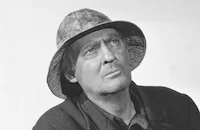
Lionel Barrymore
Gertrude Berg

Shirley Booth

Louis Calhern
Leo Durocher
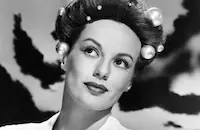
Faye Emerson
Oscar Hammerstein Ii

Rex Harrison

Joshua Logan

Mary Martin

Agnes Moorehead

Lilli Palmer

Richard Rodgers
Herb Shriner
John Van Druten

Cornel Wilde

Helen Hayes
Perry Botkin

Florence Bates
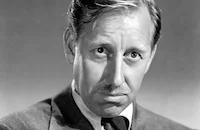
Frank Ferguson
Madge Kennedy
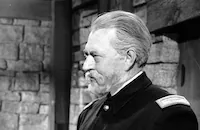
Carl Benton Reid
Robert Bray

Regis Toomey
Bill Rigney
Chris Durocher
Al Hirschfeld
B. S. Pully
Brooks Atkinson
Ward Morehouse
John Mason Brown
Richard Watts
John Mcclain
Louis Kronenberger
Gerard Swope
Elsa Maxwell
Walter Chrysler Jr.
The Katzenbergs
Joan Mccracken

Vivian Blaine

Frank Albertson

Stuart Erwin

Jeffrey Lynn
Mrs. John Jacob Astor

Maureen Stapleton

Estelle Winwood
Jesse Royce Landis
June Collier

Sam Jaffe
Lawrence Langer
Terry Helburn
Gilbert Miller
Peggy Wood
Arthur Schwartz
Lydia Reed
Charles Williams
Archer Macdonald

Jack Gilford
Jo Ann Sayers
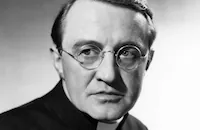
Arthur Shields
Constance Carpenter
Crew
James Anderson
Leon Arnaud
Hollis Barnes
Edward Boyle
Hattie Carnegie
Norman Cook
Jack Cosgrove
Lester Cowan
Lester Cowan
Jean Dalrymple
Perry Ferguson
Gene Fowler Jr.
Lee Greenway
Margaret Greenway
Oscar Hammerstein Ii
James Wong Howe
John Kean
Robert Lawrence
Buddy Myers
Jack Rabin
Samson Raphaelson
Richard Rodgers
Ann Ronell
Robert E. Sherwood

Film Details
Technical Specs

Quotes
Trivia
Notes
The format and cast of Main Street to Broadway changed considerably from conception to production. Pre-production news items in Daily Variety, Hollywood Reporter and the daily newspapers provide the following information: DeWitt Bodeen was originally assigned to write the screenplay, and playwrights Tennessee Williams and Arthur Miller were to contribute special material. The film was originally to be shot in Technicolor, with four or five directors handling the various stage sequences. Olivia de Havilland was to perform the balcony scene from Romeo and Juliet, and Gregory Peck and Katherine Cornell were to appear in a scene from Peter Ibbetson. The following celebrities were also announced as cast members, although they did not appear in the final film: Yul Brynner, Rouben Mamoulian, Henry Fonda, Ethel Merman, Dorothy McGuire, John Garfield and José Ferrer. A May 27, 1952 news item in Hollywood Reporter's "Broadway Ballyhoo" column reported that producer Lester Cowan sought Gertrude Lawrence for a role as a drama instructor, and was considering casting Cloris Leachman and Val Dufour as the romantic leads. According to a April 6, 1953 Hollywood Reporter news item, a jazz ballet by George Balanchine was to be danced by Tanaquil LeClerq and conducted by Benny Goodman, but no such dance sequence appeared in the released film.
Contemporary news items add Jinx Falkenberg, Betty Field and Eddie Mayehoff to the cast, but they were not in the released film. News items also include the following people in the cast, although their appearance in the final film has not been confirmed: Peter Cookson, Elmer Rice, Mr. and Mrs. Alfred Vanderbilt, Mr. and Mrs. Gilbert Miller, Mr. and Mrs. Howard Dietz, Dorothy Sarnoff, Herbert Bayard Swope, Herbert and Dorothy Fields and theater critics John Chapman, Robert Coleman, Richard Cooke, Wolcott Gibbs, William Hawkins and George Jean Nathan. Portions of the film were shot on location in New York City, and Broadway's Martin Beck Theater was the site of the opening night sequence.
According to news items, the film was produced as a fund-raising vehicle to benefit the Council of the Living Theatre, a non-profit organization founded by a small group of New York actors to promote and fund live theater. A November 19, 1952 Variety news item noted that 25% of the film's profits would be donated to the organization, which would use the money "to increase memberships in 'road show' cities and to further interest in the legit theatre." In addition, writer Robert E. Sherwood donated his entire $50,000 story fee to the Council. Cinema Productions, Inc., which produced Main Street to Broadway, was made up of film exhibitors and headed by Fred Schwartz and M. A. Lightman, both of whom were presidents of regional chains of movie houses. The Variety news item maintained that despite M-G-M's financial collaboration with Cinema Productions, the exhibitors involved in the project would not receive preferential treatment, and would have to bid against other exhibitors to book the film. A October 3, 1953 news item in Daily Variety noted that Main Street to Broadway constituted "the first time a group of top exhibs has banded together in the financing of a motion picture," adding that M-G-M and Cinema Productions had split the cost of producing the film. Some contemporary news items claimed that Main Street to Broadway was the first M-G-M release since Gone With the Wind to be produced by another company, but that statement was incorrect.
A July 2, 1952 Daily Variety news item reported that the exhibitors in Cinema Productions were so encouraged by the advance bookings that they were considering additional studio collaborations. Enthusiasm for this venture faded in the wake of Main Street to Broadway's extremely poor critical reception, however. The Cue review, which dismissed the film as a "mish-mash of movie clichés, dramatic flubs and sticky self-adulation," concluded, "Nothing, but nothing is quite so funny as watching Broadway-in frank and unabashed love with itself-admire itself self-consciously in front of the camera. Did nobody among the scores of theatre-wise folk within lens range bother to read the script?" According to a August 5, 1953 Variety news item, under M-G-M's original promotional arrangement with the Council of the Living Theatre, Main Street to Broadway was to open simultaneously in twenty-two cities with live, subscription theater. Moreover, the Council was to provide a leading stage actor to make a personal appearance at each opening. However, the multi-city opening fell through, and M-G-M blamed the Council for failing to come up with top names to promote the film. Main Street to Broadway marked the last film of actor Lionel Barrymore (1878-1954) and actress Mary Martin (1913-1990). The film was also popular radio and television humorist Herb Shriner's only film, and the last film produced by Lester Cowan.

Miscellaneous Notes
Released in United States Summer August 1953
Released in United States Summer August 1953











